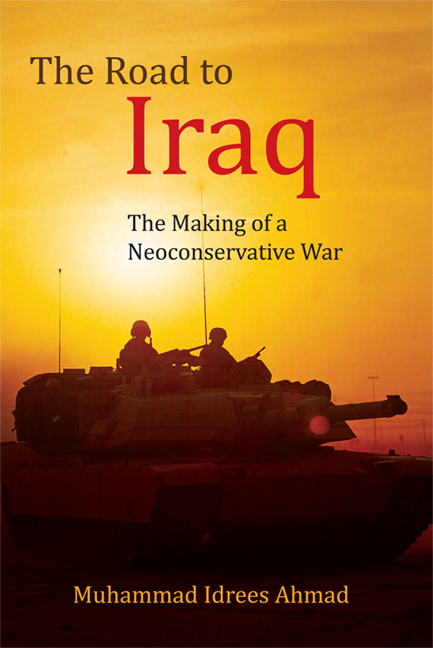Appendix
Published online by Cambridge University Press: 05 August 2016
Summary
Mearsheimer and Walt, redux
In The Israel Lobby and U.S. Foreign Policy, John Mearsheimer and Stephen Walt argue that a ‘critical element’ in the Bush Administration's decision to attack Iraq was pressure from ‘Israel and the lobby’, especially ‘a group of neoconservative policy makers and pundits who had been pushing the United States to attack Iraq since well before 9/11’. While the pressure was ‘a necessary but not sufficient condition for the war’ – 9/11 being a critical factor – without it ‘the war would almost certainly not have occurred’. It was motivated ‘at least in good part by a desire to make Israel more secure’. For many, these claims were unexceptional. It was well known that although opposition to war was higher among American Jews than the rest of the population, organised Jewry – that is, American Jewish organisations – enthusiastically backed the war; and the lobby's neoconservative spearhead played a significant role in conceiving and selling the war. The book was frequently misrepresented, misinterpreted or misunderstood, but there were also substantive criticisms relating to questions of scope, balance of power, agency and motivation.
Mearsheimer and Walt had defined the lobby broadly, including even groups like Americans for Peace Now (APN) – yet APN was opposed to the war. Organisations such as AIPAC did lobby for war, but mostly behind the scenes. The neoconservatives were indeed the leading advocates of the war, though Mearsheimer and Walt were less clear on their sources of power and their motivations in seeking regime change. But Mearsheimer and Walt were correct to note that the war would not have happened without the lobby. The fact that there were organisations within the lobby that opposed the war does not undermine their thesis. As they note, the lobby ‘is not a single, unified movement with a central leadership … and the individuals and groups that make up this broad coalition sometimes disagree on specific policy issues’. What is significant is not that a group like APN dissented, but the vigour with which the pro-war factions, especially the neoconservatives, lobbied for and enabled the war. If the neoconservatives have been able to harness the authority and resources of the US state, it is because they ride the scaffolding of a larger power structure: the Israel lobby.
- Type
- Chapter
- Information
- The Road to IraqThe Making of a Neoconservative War, pp. 176 - 205Publisher: Edinburgh University PressPrint publication year: 2014



